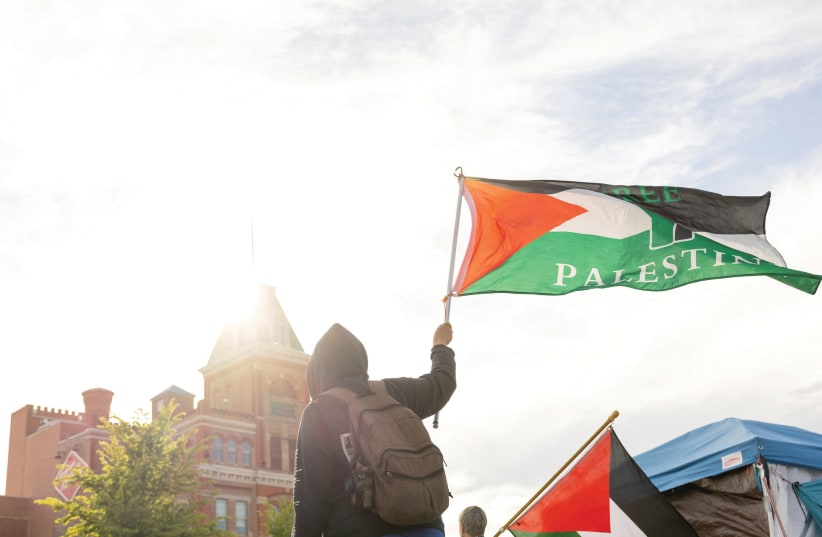I was speaking to the Israeli branch of an international company this week, and they told me that the employees from abroad demanded and pressured the company to issue a condemnation of Israel’s activities inGaza.
The company, in response, decided to hold a conversation with the employees about their “feelings.” During that conversation, accusations were tossed against Israel using a combination of propaganda messages and outright ignorant lies, which we have, at this point, gotten used to. In reality, an economic corporation, in its attempt to create an exclusive environment, created an alienating one.
The very fact that political discourse crosses borders into corporate discourse shows that thepro-Palestiniancampaign has succeeded in turning the issue from a local conflict into an international issue. Another example of this can be seen in the dizzying success of introducing the pro-Palestinian agenda on university campuses in the US – with the help of Qatari government funding, of course.
It is impossible to fight for women’s rights without activist fieldwork. In the US, for example, women these days feel that time has stood still, perhaps even gone backward, when more and more states legalize the removal of women’s bodily autonomy and the ability to decide whether or not to bring a child into this world.
Despite the tremendous impact of reducing the right to abortion in the US, including horror stories about underground abortions that have claimed women’s lives and a feeling that the situation is going to deteriorate even more, many women have gone out to demonstrate in favor of the Nukba terrorists that raped Jewish women on October 7 rather than to protest for their bodily autonomy.
So what can we, as women activists, learn from the methods of action in the pro-Palestinian struggle? There are universal elements to activism that will influence public opinion that we at Building an Alternative use.
Pressure from below works
To motivate action, one must go through the three stages of the campaign: familiarity, identification, and urgency. The pro-Palestinian movement has managed to generate enough awareness at the international level through social media; over the years, they have built identification; and the war in Gaza serves as the urgency dimension.
Their campaign, however, was neither generic nor short-term. They managed to consistently connect to each community they addressed, even if it was a community that logically should oppose the values of conservatism and religious extremism, such as the LGBTQ+ community.
This is how they made the pro-Palestinian, anti-Zionist agenda legitimate in the public eye and managed to oblige employers to give it legitimacy by making room for it. Women should learn from the Palestinians.
Women must unite, put pressure on organizations and company managers, take a stand, and echo the horror of the violation of women’s rights. This is not just a matter of American women. This is an action that women around the world can take part in.
‘Social’ works, on and off-screen
Fieldwork in 2024 does not just mean going to demonstrations. Organizing in groups is important, but each person alone cannot produce an impact like organizing a group together – something we implement at Building an Alternative to give women both confidence and connection.
The solidarity in going to the streets together increases the willingness to “pay a price” for activism.
In addition to activism on the streets, in 2024, there is a new type of activism: social activism. Significant work is being done on social media to make information accessible, to meet women directly affected by the draconian legislation, and to not just expert women who tell about the situation and allow women who cannot or do not want to demonstrate outside to demonstrate through their cell phones.
Men are partners in this fight, too
If they managed to getGen Zto take part in a fight that is supposedly thousands of miles away from them, there is no reason women cannot involve men who live alongside them under the same roof in the fight for women’s rights. This is not just a women’s problem.
Political influence
In the last elections in England, we saw the broad influence of the pro-Palestinians in electing Muslim representatives as mayors. It’s time for women to vote for those who work for and with them.
The writer is an Israeli women’s rights activist, lecturer, social activist, strategist and media personality. She is among the initiators of the coalition of women’s organizations and the founder of Building an Alternative (Bonot Alternativa).

